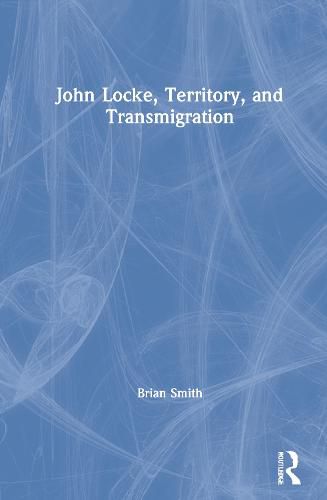Readings Newsletter
Become a Readings Member to make your shopping experience even easier.
Sign in or sign up for free!
You’re not far away from qualifying for FREE standard shipping within Australia
You’ve qualified for FREE standard shipping within Australia
The cart is loading…






This book examines John Locke as a theorist of migration, immigration, and the movement of peoples. It outlines the contours of the public discourse surrounding migration in the seventeenth century and situates Locke’s in-depth involvement in these debates. The volume presents a variety of undercurrents in Locke’s writing - his ideas on populationism, naturalization, colonization and the right to withdrawal, the plight of refugees, and territorial rights - which have great import in present-day debates about migration. Departing from the popular extant literature that sees Locke advocating for a strong right to exclude foreigners, the author proposes a Lockean theory of immigration that recognizes the fundamental right to emigrate, thus catering to an age wrought with terrorism, xenophobia and economic inequality.
A unique and compelling contribution, the volume will be of great interest to scholars and researchers of political theory, political philosophy, history of international politics, international relations, international political economy, public policy, seventeenth century English history, migration and citizenship studies, and moral philosophy.
$9.00 standard shipping within Australia
FREE standard shipping within Australia for orders over $100.00
Express & International shipping calculated at checkout
This book examines John Locke as a theorist of migration, immigration, and the movement of peoples. It outlines the contours of the public discourse surrounding migration in the seventeenth century and situates Locke’s in-depth involvement in these debates. The volume presents a variety of undercurrents in Locke’s writing - his ideas on populationism, naturalization, colonization and the right to withdrawal, the plight of refugees, and territorial rights - which have great import in present-day debates about migration. Departing from the popular extant literature that sees Locke advocating for a strong right to exclude foreigners, the author proposes a Lockean theory of immigration that recognizes the fundamental right to emigrate, thus catering to an age wrought with terrorism, xenophobia and economic inequality.
A unique and compelling contribution, the volume will be of great interest to scholars and researchers of political theory, political philosophy, history of international politics, international relations, international political economy, public policy, seventeenth century English history, migration and citizenship studies, and moral philosophy.